2 May 2025 | Asia and Pacific, Burma, News and features
Blocking international media from reporting in Myanmar following the huge earthquake in March shows the military junta does not tolerate press freedom, experts say.
A huge 7.7 earthquake struck central Myanmar on 28 March, mostly impacting Mandalay and Sagaing, causing the death of thousands of civilians and the collapse of homes and buildings.
International media outlets flew from all over the world, hoping to get inside Myanmar to cover the disaster. Most had flown into Bangkok, Thailand, where the tremors of the earthquake hit, causing a 30-storey skyscraper to collapse with dozens of construction workers trapped underneath.
But the Myanmar military, officially the State Administration Council, claimed the situation was too dangerous for reporters, and also said accommodation options were limited for reporters entering the country.
Journalist struggles
Silvia Squizzato, an Italian journalist for Rai TV, says she was informed that entering Myanmar brought risks.
“As soon as I arrived in Thailand, I called the Italian embassy in Myanmar to ask if they could help me speed up the visa process, as it takes at least three months to get a journalist visa,” she said. “The Italian embassy repeatedly said it wasn’t possible; they also repeated that entering Myanmar with a tourist visa was too dangerous given the civil war in the country.”
Because of the rejection of a visa, Silvia and her outlet were unable to report on the ground.
“We couldn’t report on the earthquake up close, it was very frustrating. The military junta doesn’t want journalists in the country but neither do various rebel groups. I interviewed many refugees from Myanmar, and they all didn’t agree with this choice,” she added.
Arjan Oldenkamp, a cameraman for RTL Nederland, was another journalist who flew from Europe to cover the disaster. He had travelled all the way from Amsterdam to Bangkok, in the hope that he would get into Myanmar.
“[It was frustrating] for me as a cameraman,” he said. “I wanted only one thing: to get the news right, especially in a place like Myanmar. I would have liked to make a good report. We could not get to the core of the earthquake, it was very frustrating for me. After all, I had flown 13 hours only to be told that we could not get there.”
Damage done
At least 3,700 people have been killed in Myanmar because of the earthquake, with more than 5,000 injured. Recovery efforts are still ongoing, nearly a month after the quake struck.
The earthquake has caused damage to more than 50,000 buildings with nearly 200,000 people displaced, according to the International Federation of Red Cross and Red Crescent Societies.
For those who have survived the disaster, the cost of rebuilding their homes is unmanageable, and many have been left without food, water or shelter. Bill Birtles, Indonesia correspondent for Australia Broadcasting Corporation (ABC), says if the military had allowed foreign media to enter, more aid and assistance could have been provided from the international community.
“We simply went to the embassy in Bangkok and were told to contact the Ministry of Information in Myanmar via generic email, and only after they ordered it could the embassy begin accepting and processing materials in Bangkok,” he said. “It was obvious there wasn’t a clear way to apply for the J [journalist] visa.
“I think, had the military government allowed international media crews to easily enter, they could have shown the devastation more easily to global audiences, which potentially could have increased the global aid response,” he added.
International aid
The quake did see the military make a rare plea to the international community for aid.
Teams from the UK, USA, China, Malaysia, New Zealand and South Korea pledged millions of dollars in emergency aid, while Thailand, Indonesia, Philippines, Vietnam, India, Japan, Singapore and Russia sent rescue units to help with the emergency.
But relief efforts have been complicated, as Myanmar has been suffering from a brutal civil war since the military coup of 2021.
The Myanmar military has been in battle with resistance groups, including the National Unity Government of Myanmar, and ethnic armed organisations. Today, the junta has full control over less than a quarter of the country’s territory.
But any international aid that has come into Myanmar has had to go via major cities, including the capital Naypyidaw, Yangon and Mandalay. These cities are controlled by the Myanmar military, which has raised concerns about how the aid will be distributed to earthquake-affected areas, such as Sagaing, which is partially under the control of opposition groups.
Even though state-controlled media outlets from China and Russia, two of the Myanmar military’s few international allies, were provided some reporting access, international media reporting on the ground in Myanmar has been limited. The BBC managed to get a team into Myanmar via India, while Al Jazeera and Agence France-Presse (AFP) already had small teams in Myanmar when the earthquake struck.
Local criticism
Tin Tin Nyo, the managing director of Burma News International, said the military has restricted local media, too.
“The blocking of international media demonstrates that the military junta does not tolerate press freedom or free flow of information,” she said.
“They want to prevent the media from uncovering their mistreatment of the people and their negligence regarding public wellbeing and safety. This pattern will likely extend to various disasters and human rights violations occurring in Myanmar. They have clearly restricted not only local media but also international media from conducting ground reporting on the earthquake and its aftermath, which gravely impacted on the relief and recovery process,” she added.
The Independent Press Council of Myanmar (IPCM) has called the military’s decision to ban international media a “blatant violation of press freedom”.
“The exclusion of international media from reporting on the earthquake’s aftermath, as indicated by General Zaw Min Tun’s pronouncements, is a blatant violation of press freedom and a deliberate attempt to obscure the scale of the disaster. We categorically denounce this obstruction and insist upon the unfettered right of journalists, both domestic and international, to report on this crisis, for the sake of the affected population, the international community, and humanitarian aid organisations,” an IPCM statement read.
Myanmar press freedom environment
The denial of international media only adds to the dire environment for press freedom in the country.
For years, the Myanmar military has cracked down on independent media over the past four years with outlets having their media licences revoked. Hundreds of journalists have been arrested, dozens have been detained while others have been killed. Two freelance journalists were shot dead last year during a military raid. Access to information in the country remains difficult, as journalists continue to be targeted by the military authorities.
As part of that crackdown, the junta has used other tools to prevent information flow into the country.
In January, the military enacted a new cybersecurity law in Myanmar that banned the use of virtual private networks (VPNs). Myanmar also had the most internet shutdowns across the world in 2024, according to a report released earlier this year by digital rights group Access Now. It revealed that most of the 85 shutdowns came at the hands of the military authorities.
2 May 2025 | Afghanistan, Africa, Americas, Asia and Pacific, Belarus, Europe and Central Asia, India, News and features, Somalia, Turkey, Uganda, United States
Tomorrow marks World Press Freedom Day, a day started in 1993 to remind governments of their duty to protect freedom of the press. This year, the need for this reminder feels more urgent than ever.
In the USA, President Donald Trump has been in office for just over 100 days and already we’ve witnessed attempts to attack independent media and dismantle press freedom. Since the beginning of his second term in office, Index has reported on Trump’s war on truth, on the devastating implications on journalism his cuts to the US Agency for Global Media (USAGM) entities including Voice of America and Radio Free Europe/Radio Liberty (RFE/RL) will have, and how he’s worked to remove critical media from the White House.
Within this context, on World Press Freedom Day, Index has called upon its contributors from around the world, working in countries where they fight for press freedom every day, to reflect on what it means to them and why it is so important we defend it.
SOMALIA
Hinda Abdi Mohamoud, chief editor at Bilan Media
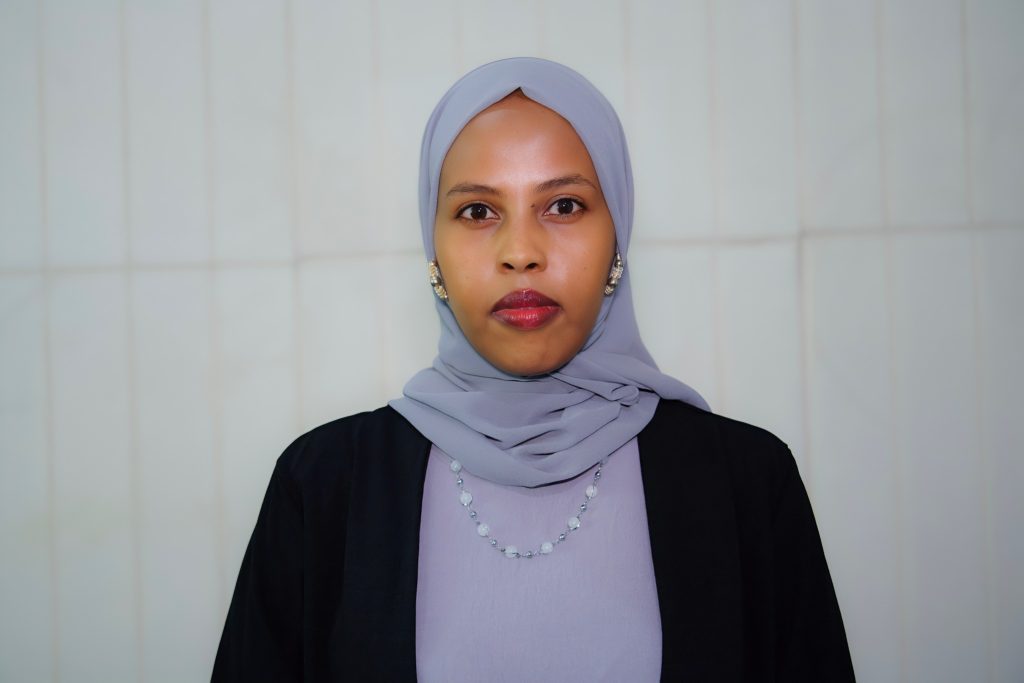
“As a journalist and the chief editor of Bilan Media, the only all-women newsroom in Somalia, I know that press freedom isn’t just important – it’s essential to our survival and our work. In a place where speaking the truth can be dangerous, where women’s voices have long been silenced or sidelined, press freedom is the tool that allows us to challenge injustice, elevate unheard stories, and advocate for real change.
That’s why organisations like Index on Censorship are so vital. They support journalists who risk their safety to ensure the truth is told. They defend journalists’ right to report and protect the public’s right to know.”
TURKEY
Nedim Türfent, journalist
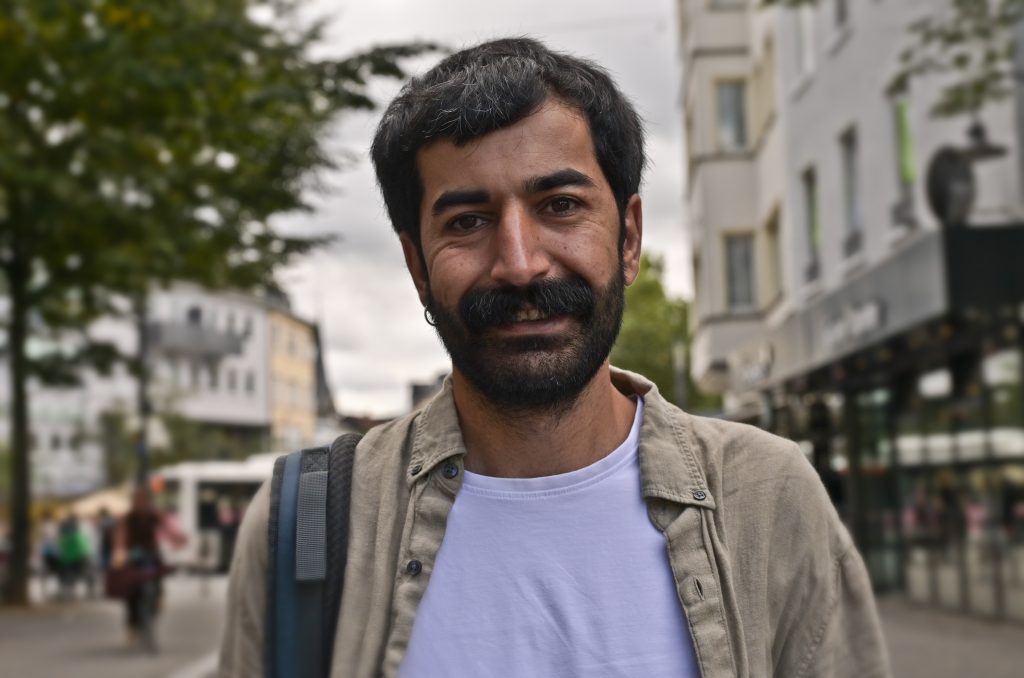
“Freedom of the press is, above all, the first bastion we must defend for the sake of all our other rights and freedoms. Ultimately, in a time and place where the press is not free, it becomes impossible to make our demands for rights visible, known, and heard. If we do not want our rights and freedoms to be dismantled piece by piece, we must be unwavering defenders of press freedom.
The fight for press freedom by international organisations is essential to ensure that the voices of journalists and media outlets facing oppression and persecution anywhere in the world are heard. This cross-border struggle also serves to prevent enemies of press freedom from casually and effortlessly exerting pressure on journalists – as if it were something ordinary. The louder and stronger the voice of international institutions, the more hesitation those enemies will have before violating the rights of journalists.
However, the heavy burden of this struggle should not rest solely on the shoulders of journalists and media organisations. We must remember: when the rights of even a single journalist are violated, the right of thousands of people to access information is also restricted. Shortly, in a world where press and freedom of expression are increasingly eroded, none of our rights or freedoms can be truly guaranteed. It’s that simple.”
AFGHANISTAN
Spozhmai Maani, journalist
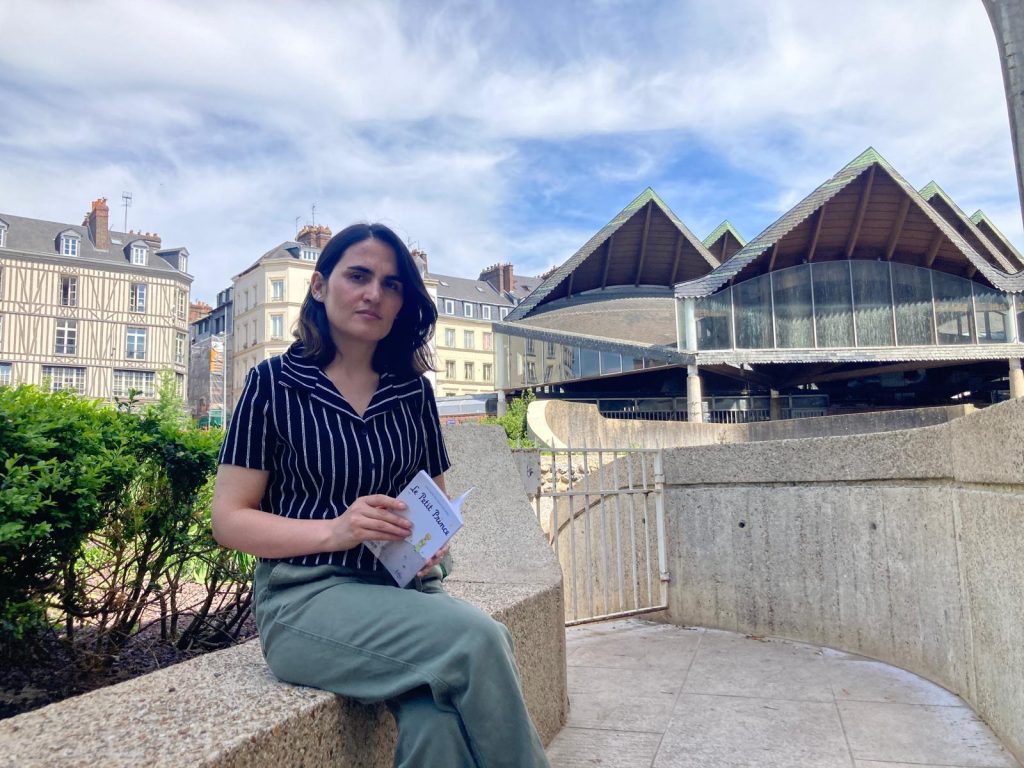
“For me, press freedom is not just a principle, it is a lifeline for truth and justice, especially in places like Afghanistan where silence is often enforced with fear. As a journalist who fled persecution for simply telling the truth, I know firsthand how critical it is to protect the voices that hold power to account. Organisations like Index on Censorship are essential in this fight. They give strength, visibility, and protection to those of us who risk everything to speak out. In a world where even established democracies are seeing press freedom eroded, their work is more urgent than ever.”
INDIA
Salil Tripathi, contributing editor at Index on Censorship
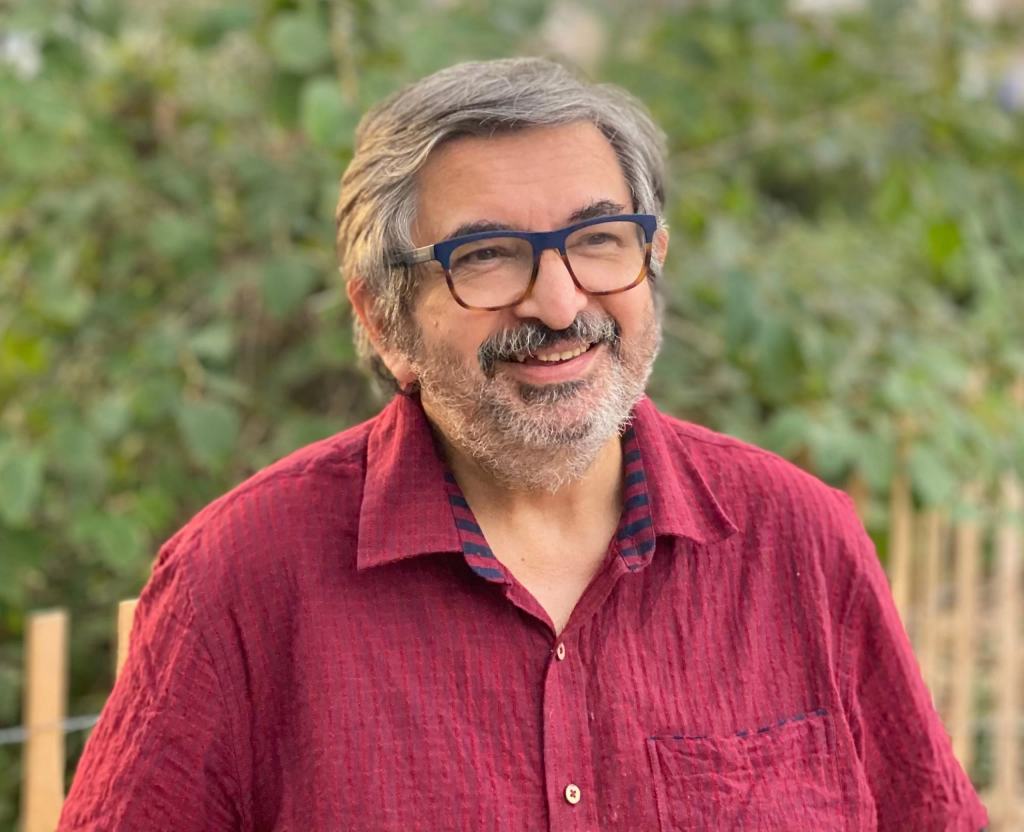
“We only have to look at closed societies from our past and present to know what life is like without press freedom. That some leaders and many people continue to believe in controlling the press – through laws, oligarchs, governments, and intimidation – shows what they are afraid of, and it shows why publications like Index on Censorship continue to matter.”
UGANDA
Danson Kahyana, contributing editor at Index on Censorship
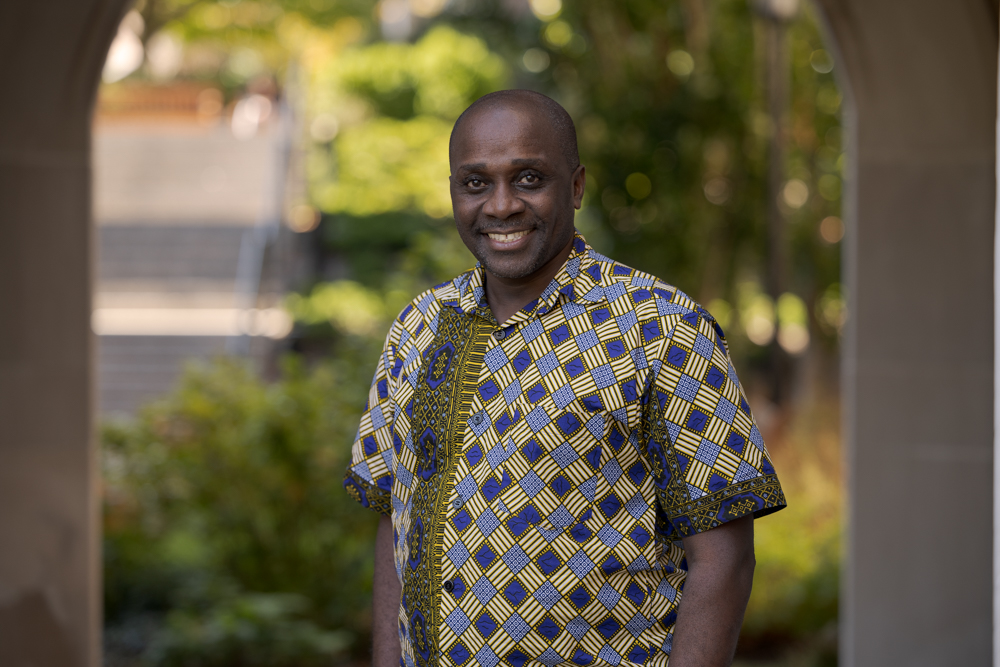
“Press freedom is the foundation of democracy – the press should be able to report on any matter of public importance without fear or favour. The moment press freedom is threatened, expect democracy to rot and die from within because nobody will be able to say, ‘Look – the emperor is naked!’ So nakedness (corruption, impunity, heavy-handedness, tyranny, etc.) will go unreported, thereby weakening institutions into comatose. In Uganda, we have seen this happen: The emperor called General Yoweri Museveni has gotten worse every year that passes. The more power he amasses by weakening institutions like the parliament and the judiciary the more naked he gets. It is because Ugandans have reported on his myriad abuses of power that the world has come to know that all along, he was a tyrant in democracy’s skin.
Because authoritarian regimes wield immense resources to punish critics as a means of stifling dissent, we need organisations like Index on Censorship to shine a light on tyrants’ assaults on freedom. Like witches and wizards, tyrants do their evil work in the safety of the dark. Index and other organisations like it remind the tyrants that someone is watching them, and that sooner than later, they will be held accountable for their misdeeds. In other words, Index and other organisations like it provide an archive of the tyrants’ atrocities that will be used against them in the courts of law. What is happening to former Philippines President Rodrigo Duterte is a good example – the reports against him caught up with him. Besides, by providing constant companionship and solidarity to journalists, Index and other organisations like it embolden the defenders of good governance and human rights in their castigation of impunity.”
BELARUS
Jana Paliashchuk, researcher

“While press freedom is a basic right in many countries, for millions of Belarusians it’s been denied for three decades under Aliaksandr Lukashenka’s dictatorship. Speaking out against repression often leads to prison – and journalists are hit hardest.
Today, 40 media workers are behind bars in Belarus for simply doing their jobs. Journalists like RFE/RL’s Ihar Losik and Belsat TV’s Katsiaryna Andreyeva. are serving harsh sentences and enduring torture behind bars. Other journalists were forced into exile, continuing their work from abroad, while Belarusians inside the country risk punishment just for reading independent news.
This may sound grim, but it’s the reality in Belarus, a European country. That’s why defending press freedom matters. It may seem like a solid foundation of society, but it’s as fragile as glass.”
18 Mar 2025 | About Index, Asia and Pacific, News and features, Newsletters, Philippines
Less than a year after I joined Index in 2017, Maltese journalist Daphne Caruana Galizia was murdered. Of all the words that come to mind when reflecting on Caruana Galizia – both in life and in death – “impunity” stands out most vividly. Perhaps it was a warning of things to come. Impunity is alive and well today. As the rules-based global order strains, criminals are no longer merely walking free, they are walking the halls of power. But this week, justice finally caught up with one of them: Rodrigo Duterte, former president of the Philippines. On Tuesday, he was arrested by the International Criminal Court (ICC) and flown to The Hague.
Duterte was also on my radar when I arrived at Index. He became president in 2016 and held office until 2022. He embodied a particular kind of autocrat, one we’ve sadly become all too familiar with: vulgar, brazen, insecure, chaotic, chauvinistic and brutal. During his presidency, Index maintained regular contact with the team at Rappler, the leading news outlet in the Philippines, which Duterte was particularly hostile towards. Miriam Grace A Go, Rappler’s news editor, penned a defiant piece for us in 2018, detailing the harassment journalists faced. They were regularly targeted with threats, described as “paid hacks who deserved to lose their jobs, be jailed, raped, or murdered,” and had to increase their security. A year later, Go wrote of Duterte’s descent into a vicious, power-drunk figure who harboured a pathological and violent hatred for women.
Duterte’s arrest this week stemmed from his so-called “war on drugs,” which is estimated to have left up to 30,000 dead, primarily poor, young men. His brutality extended far beyond this tragic group. In 2020, we honoured one of his victims, the radio journalist Rex Cornelio, in an obituary.
In the nearly three years since Duterte stepped down from the presidency, it looked unlikely that he would ever face accountability. Another case of impunity, it seemed. But Duterte couldn’t resist stoking controversy. In a recent outburst, he called the current president, Ferdinand Marcos Jr., a “drug addict” and a “son of a whore.” Perhaps that expletive-laden broadside was his undoing. The rift between the Duterte and Marcos families ultimately paved the way for the ICC arrest.
This week, there will be no cheers from those who have suffered at Duterte’s hands, or from those of us who witnessed his rule with horror. It would also be premature to proclaim the days of impunity over. Instead, his arrest marks a small ray of light in these otherwise dark times.
10 Nov 2023 | Hungary, News and features, Opinion, Ruth's blog
How we express ourselves and the mediums we choose is an intensely intimate process. Artists, writers, dancers, actors and musicians think very hard about what they wish to convey and how they wish to convey it.
Creativity and freedom of expression go hand in hand. To curtail one imperils the other. Creativity that is confined is censorship and when freedom of expression is under threat, self-censorship in art and culture becomes more prevalent.
All of us who value our voices and our freedoms have a duty to promote and protect creativity and ensure that everyone can tell their stories – however challenging they may be – in whatever medium they choose.
We expect these challenging but universal rights to be upheld in every nation – and especially those that claim to share our democratic values. And you would have thought they would be a given within the European Union member states. Yet, it seems all too often we are likely to be disappointed.
Victor Orbán’s government of Hungary is a case in point. A member of the European Union, Hungary is seemingly on a path leading further away from the democratic norms we all hold dear and venturing off to the dark recesses of oppression.
This week, the target of Hungary’s increasing authoritarianism is the World Press Photo exhibition and specifically the work of Hannah Reyes Morales.
Reyes Morales is a widely respected artist who uses her art and her skill to tell the story of LGBTQI+ life in the Philippines based on her own lived experience. She explores the joy, the optimism, the heartache and the sorrow that modern life brings to everyone.
Her artwork is a canvas in which her representation of emotion is weaved delicately against her own experiences. It is a celebration of what it is to be human and a stark reminder of the fragility of what we all hold dear.
So, a celebrated artist of international standing showcasing her work in a European Country. That’s all good then, yes?
Apparently not.
Orbán’s government not only sought to censor the World Press Photo exhibition – they sought to ban any and all works which featured LGBTQI+ works.
The head of Hungary’s National Museum, Laszlo Simon, has now also been sacked for his curation of the exhibition. He is accused of providing access to material to under 18s which ‘promotes’ homosexuality under the controversial Hungarian law that bans the “display and promotion of homosexuality” in materials accessible to children, such as books and films.
While the head of the museum is clear that no laws were intentionally broken, the compliance with the rule is not the issue. It is the law itself which is an affront to freedoms. And the fact that for the first time on European soil the World Press Photo exhibition has been censored.
LGBTQI+ rights in Hungary are under attack and those who speak out are ostracised. Artistic freedom is under attack and those that challenge it do so at the fear of losing their jobs.
This is yet another attempt by the repressive regime of Viktor Orbán to erase minority voices, silence campaigns and censor anything that does not fit into his narrow world view.
The European Commission chief Ursula von der Leyen has already called Orbán’s legislation a ‘disgrace’. Human rights organisations around the world have marked Hungary’s lurch to the populist right as a defining moment in European history and should pose the question to other EU members about the sort of leaders they want in their club.
But it also exposes the ease with which authoritarianism and censorship can spread. Curtailing creativity today will lead to greater censorship tomorrow.
Index on Censorship continues to – and always will – share the stories of those silenced by Orbán. And we stand with Simon and Reyes-Morales as they try to make sure that all voices are heard and celebrated.






